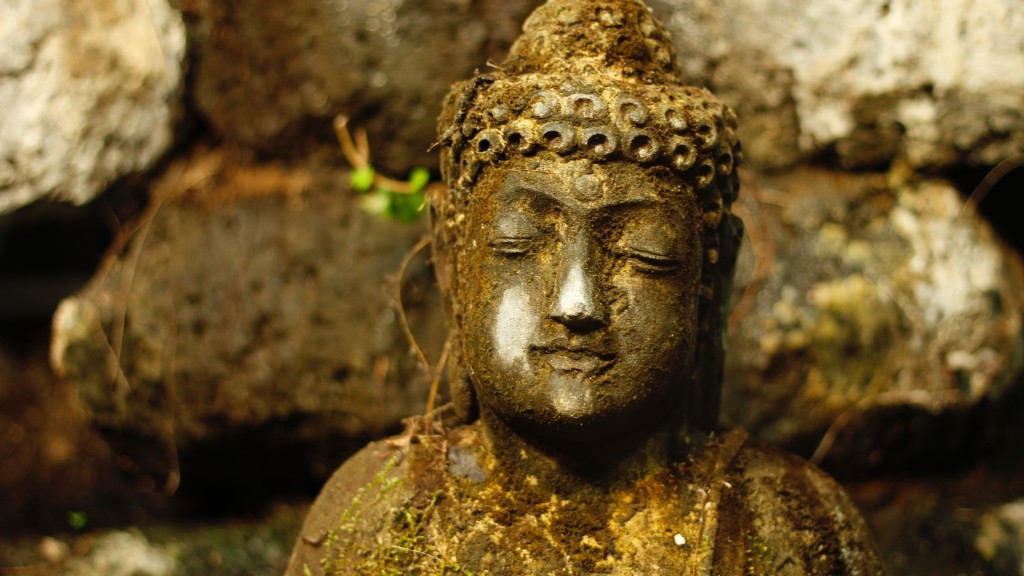Islam and Hinduism share some essential similarities. The most basic of these is their strong belief systems, which serve as the foundations of their respective religions. They also share certain tenets that govern the way their adherents live. As two of the oldest religions in the world, they have evolved over time to meet the needs of their followers.
One of the most important similarities between Islam and Hinduism is their recognition of the spirit of truth, or God. In both faiths, this is manifested in different ways and to varying extents. In Islam, obedience to Allah is paramount and is demonstrated through prayer, fasting and other acts of worship. In Hinduism, the spirit of truth is usually referred to as Brahman or Ishwara and is evident in the practice of yoga, meditation and other forms of spiritual practice.
Additionally, both religions have a strong emphasis on social justice. Islam prescribes laws that guarantee equality and fairness among people, while Hinduism promotes ahimsa, or non-violence. Both religions also stress the importance of service to humanity, particularly in terms of helping those in need.
In terms of ritual practice, both religions have specific guidelines related to modesty, prayer and devotion. For example, both religions require modest dress for their adherents, and special attention must be paid to dress codes when visiting a place of worship. Similarly, both religions have rules about the kind of food that should be consumed and the appropriate times for prayer.
Another similarity between Islam and Hinduism is their view on human life. Both religions emphasize the principle of charity and the importance of giving back to society. They also believe that human life is valuable and should be cherished. This is manifested in their teachings on kindness, respect and compassion for others.
Moreover, both religions have beliefs and practices that promote peace, love and harmony. In Islam, this is evident in its five pillars, which include faith, prayer, charity, fasting and pilgrimage. In Hinduism, this is also evident in the concept of ahimsa or non-violence. Additionally, both faiths place a strong emphasis on living a virtuous life, and this is reflected in their teachings on honesty, integrity and purity.
Impact On Society
Both Islam and Hinduism have had significant impacts on the societies in which they are practiced. For example, Islam has shaped the political systems in many Middle Eastern countries, and its teachings on equality, justice and fairness have been instrumental in improving the lives of many people. Similarly, Hinduism has been instrumental in promoting India’s rich cultural heritage, and its ideas about ahimsa and non-violence have helped to bring about social change. Additionally, both religions have inspired great works of art, and their philosophies have been an important source of knowledge and wisdom in the regions in which they are practiced.
Conclusion
Overall, it is clear that there are many similarities between Islam and Hinduism. Both religions share fundamental beliefs, such as the spirit of truth, social justice and human life as valuable, and they both have rituals and practices that are aimed at promoting peace, love and harmony. Moreover, both religions have had profound impacts on the societies in which they are practiced. Although there are differences between the two religions, by looking at the similarities, it is possible to gain an understanding of how each faith has influenced and enriched the lives of its followers.
The Role of Rituals
Rituals are integral to both religions and serve to strengthen the spiritual connection between the individual and the divine. In Islam, the five daily prayers are an important form of ritual which remind one of his or her relationship with God. As such, prayer is seen as a means to attain spiritual guidance and enlightenment, and believers are urged to take part in these prayers regularly. Similarly, in Hinduism, ritual is an important part of religious practice, and believers typically take part in a range of practices such as the traditional puja – and in some cases, animal sacrifice. These rituals typically involve offerings such as flowers, incense and food, and they serve to enhance the spiritual connection between the individual and the divine.
Role of Mythology and Stories
Myths and stories are another way in which the beliefs of both Islam and Hinduism have been transmitted over time. In Islam, stories from the Quran and the life of the Prophet Mohammed are used to help explain and illustrate the teachings of the faith. Similarly, in Hinduism, stories from the Ramayana, Mahabharata and other Vedic texts are used to convey its spiritual messages. Through these stories, both faiths are able to pass on their messages – whether it be about the importance of charity, the need for spiritual enlightenment or the value of peace and non-violence. They also help to inspire believers, providing them with role models to look up to and emulate.
Role in Society
The two faiths have also been significant influences on society, as they have helped to shape society’s values, attitudes and beliefs. The teachings of Islam have had a profound impact on Middle Eastern cultures, while those of Hinduism have had an equally deep impact on societies in India. These faiths have helped to create a shared identity and purpose, and their impact has extended far beyond the boundaries of the countries in which they are practiced. In addition, their messages of compassion, love and tolerance have been adopted by millions around the world, demonstrating their global influence and importance.
Contemporary Transformations
In recent decades, both Islam and Hinduism have experienced a period of transformation. For example, movements such as the Wahhabi movement in Islam have sought to modernize the faith and make it more accessible to the global community. Similarly, in Hinduism, reform movements such as the Ramakrishna Mission have sought to modernize the faith and make it more relevant to contemporary society. These movements have opened up new avenues of understanding and interpretation, and they have helped to ensure that both religions remain relevant in the 21st century.
Differing Doctrines
Despite their many similarities, there are some key differences in the beliefs and doctrines of Islam and Hinduism. For example, in Islam, the Quran is believed to be the word of God and is seen as a divine source of guidance and wisdom. Conversely, in Hinduism, there is no single holy book which is held as authoritative. Additionally, another major difference is the position of women in both religions. In Islam, women are seen as equals to men, while in Hinduism, there is more emphasis on traditional gender roles and roles of authority. Finally, in terms of afterlife, Islam believes in an afterlife, while Hinduism does not explore the concept in detail.

